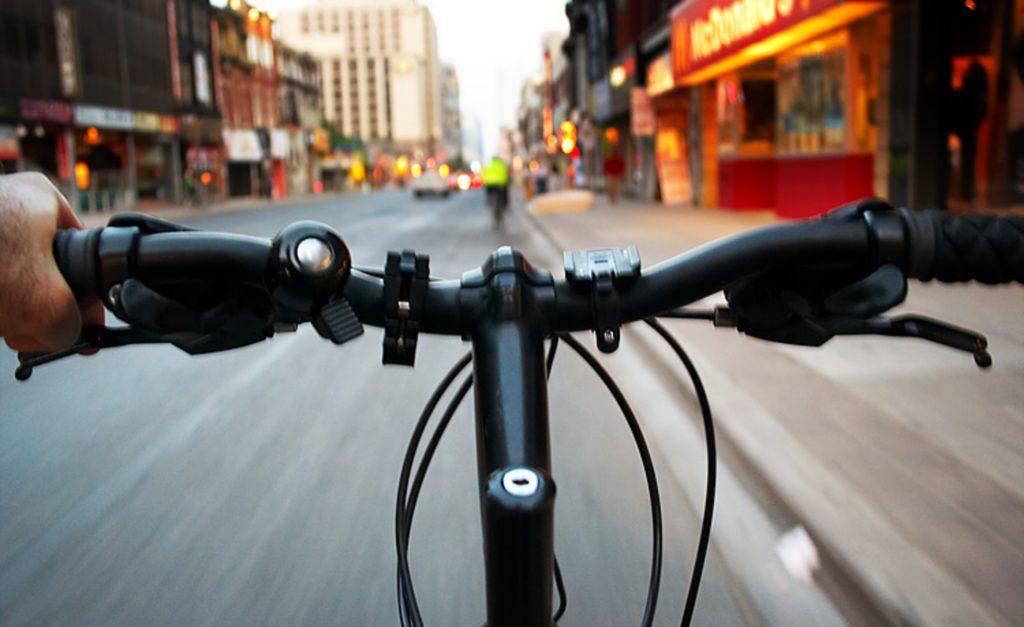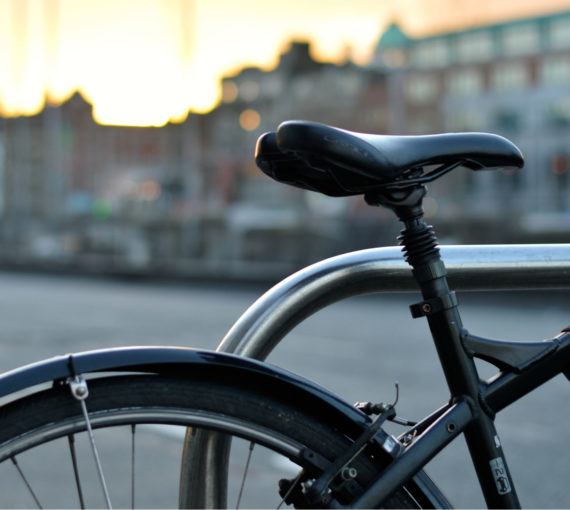Toronto is building bike lanes on Bloor Street, Danforth Avenue and University Avenue downtown — a fantastic step that deserves applause. Kudos to city council for making this happen.
But what about folks who live in midtown?
They need a bike lane too, and Yonge Street would be a great place to put it.
To this end, midtown residents have come together with Cycle Toronto, the David Suzuki Foundation and other organizations to urge council to build a bike lane on Yonge from St. Clair to Lawrence Avenue. They’re calling the campaign “Yonge Loves Bikes.”
A Yonge bike lane makes sense for so many reasons.
The mayor has rightly said we need bike lanes to supplement subways and act as a COVID “relief valve.” In other words, bike lanes along subway routes can help ensure our subways aren’t overcrowded.
EKOS found 75 per cent of people who rely on cars endorse the lanes.
A Yonge bike lane would be popular with Torontonians. Polling done earlier this year by EKOS Research found that, across the city, 79 per cent of residents support building protected bike lanes. In the “former City of Toronto” — where a midtown Yonge lane would go — support rises to 83 per cent. And bike lanes aren’t just popular with cyclists. EKOS found 75 per cent of people who rely on cars endorse the lanes.
Whether they drive or ride a bike, folks know it makes sense to give a portion of the road to cars and a portion to cyclists so everyone is safe in their own protected space. As Mayor John Tory has said, “Bike lanes also support Toronto’s Vision Zero Road Safety plan.”
A Yonge bike lane would help essential employees — like doctors and nurses — travel to their workplaces. The mayor has pointed out that bike lanes “help safely get our frontline healthcare workers where they need to be.” If you’re a health professional who lives, say, at Eglinton and Yonge and works at a downtown hospital, you currently have no safe cycling route. A Yonge bike lane would start to remedy this problem. And what could be more important than getting doctors and nurses to work?
“Monthly customer spending and number of customers served by merchants both increased on Bloor Street during the pilot.”
Bike lanes can also be good for the economy. Toronto’s Centre for Active Transportation studied the economic impact of putting pilot bike lanes on Bloor Street. Its key finding: “Monthly customer spending and number of customers served by merchants both increased on Bloor Street during the pilot.”
Everyone knows COVID has taken a terrible toll on local merchants, vastly reducing their incomes. We need to safely bring shoppers back to our main streets, and cycling infrastructure can be part of the solution, offering another way for stores and customers to connect. In a word, bikes mean business.
Finally, we can put bike lanes on Yonge without sacrificing other means of transportation. The roadway is wide. There would still be plenty of room for the TTC’s Yonge 97 bus, private cars, parking — even restaurant patios.
Other Canadian cities, such as Montreal and Vancouver, are moving quickly to install cycling infrastructure. In recent months they’ve made great strides.
If we want any chance of keeping up with them, a Yonge bike lane is essential.
This op-ed was originally published on TRNTO.com
Projects
Always grounded in sound evidence, the David Suzuki Foundation empowers people to take action in their communities on the environmental challenges we collectively face.




